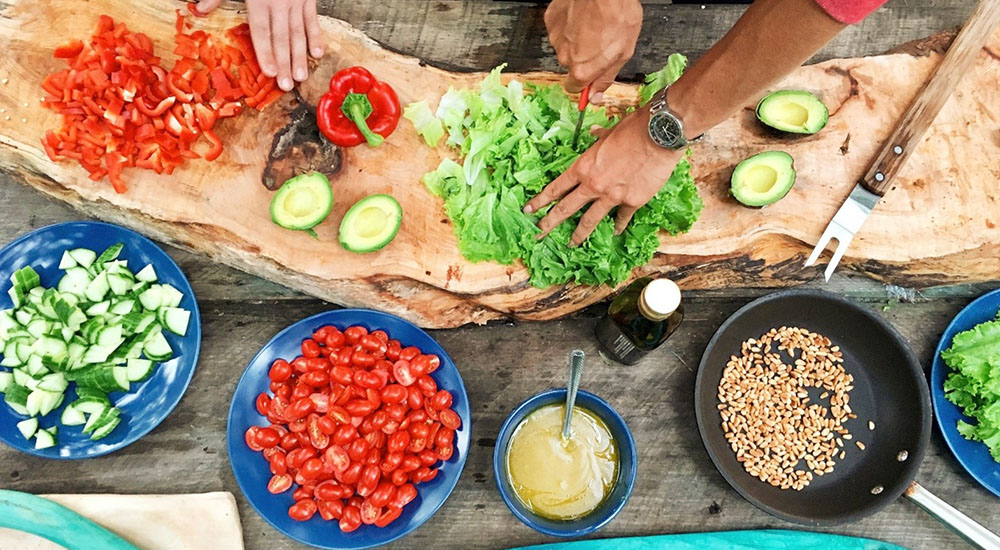Have you heard of the Mediterranean diet? The Mediterranean is a group of countries sharing a coastline of the Mediterranean Sea, including Spain, Italy, Greece and France. These countries share cultural similarities, especially when it comes to food.
The Mediterranean diet is largely known for its many anti-inflammatory health benefits that may improve blood pressure levels, lower cholesterol numbers, promote weight loss and more. Plus, this way of eating may also protect your brain against conditions like dementia and depression.
The Mediterranean diet is mostly comprised of vegetables, fruits, whole grains, beans/nuts/seeds and olive oil. It contains low amounts of red meat and added sugar.
Helpful suggestions
Here are a few tips make your diet more Mediterranean:
- Eat fish or other sources of seafood at least twice per week. Fish, especially salmon, is rich in healthy fats that are beneficial for your brain and heart. This Mediterranean Salmon Salad uses canned salmon for an easy way to incorporate fish into a meal.
- Enjoy at least three servings of nuts and seeds per week. Nuts are rich in minerals like magnesium that promote healthy blood pressure levels. Grab a handful of low or lightly-salted mixed nuts for a filling snack, toss pumpkin seeds on your salad, or add pecans, walnuts or almonds to your morning oatmeal recipe.
- Fill half of your plate with colorful, non-starchy vegetables, like leafy greens, carrots, bell peppers, broccoli, cauliflower and more. Need recipe inspiration? Here is a list of over 50 ways to cook vegetables.
- Incorporate meatless Monday. The Mediterranean diet focuses largely on plant-based sources of protein, like beans and legumes instead of red meat and poultry. Beans are high in fiber, which promotes regular bowel movements and feeds healthy gut bacteria. Try this White Bean, Kale, and Tomato Stew for a meatless Monday dinner option.
Encouraging healthy habits
Beyond food, the Mediterranean culture encourages other habits that benefit your health. People in the Mediterranean value meals as a social gathering. Try to eat at least one of your meals at the kitchen table. If you live with friends or family, encourage them to enjoy a sit-down meal with you void of technology.
Take your time when eating. Rushing through a meal may lead to overeating, bloating and less meal satisfaction. Aim to make your meal last at least 20 minutes. While the Mediterranean culture also enjoys a glass of red wine with dinner each day, this is not a requirement. We recommend asking your primary care provider if it is okay to consume alcohol.
If you’re interested in learning how to incorporate more aspects of the Mediterranean diet into your life, reach out to a Registered Dietitian Nutritionist at your local VA.
Topics in this story
More Stories
Watch the Under Secretary for Health and a panel of experts discuss VA Health Connect tele-emergency care.
The 2024 National Veteran Suicide Prevention Annual Report provides the foundation for VA’s suicide prevention programs and initiatives.
Theranostics is a specialized field of nuclear medicine that uses a two-pronged approach to diagnose and treat cancer.







